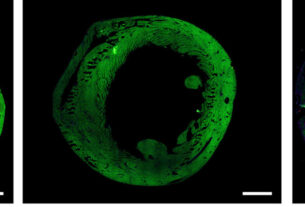Human sex has long been decided by the X and Y chromosomes – females are born with two X chromosomes, whereas males are born with one X and one Y chromosome. That future might be at risk as Y chromosomes continue to gradually disappear across different mammal species, a new study found.
The study, which was published in the peer-reviewed multidisciplinary scientific journal PNAS (Proceedings of the National Academy of Sciences), analyzed the platypus – a mammal that has different sex chromosomes, whereas most mammals have an X and Y chromosome-based system similar to that of humans.
The Australian Platypus, however, has XY chromosome pairs that would normally dictate that the mammal was a male – suggesting that the XY pairing was typical of mammal species not long ago.
Researchers estimated that the Y chromosome has lost over 900 active genes over 166 million years – the time period that human beings and the Australian Platypus have been evolving separately. At this rate, genes linked to Y chromosomes will be extinct in 11 million years.
How did other mammals overcome losing their Y chromosome?
While researchers fear humans would be the next species to lose Y chromosomes, the global scientific community is already aware of a mammal that has determined sex through genetics even after losing its Y chromosomes – two species of rodents.
The mole voles of eastern Europe and the spiny rats of Japan no longer have Y chromosomes, as they have completely disappeared as a result of evolution. Spiny rats, an endangered species native to several Japanese islands, managed to produce as males and females regardless due to a change in the rat’s chromosome 3. It remains unclear how the mole vole has evolved past Y chromosomes, though researchers will use the discoveries in spiny rats to continue researching.
“The evolution of differentiated sex chromosomes has been intensively studied over many decades to address questions, not only about the sex-determining mechanism but also on the genetic changes to sex chromosomes,” the Tokyo University researchers who authored the study wrote in their abstract. “Mammals possess an extremely stable XY chromosome system, in which the Y has almost completely degraded.”
While the eventual disappearance of Y chromosomes could theoretically lead to the extinction of mankind, evolution could also lead to new sex-defining genes developing and taking precedence over the weakening Y chromosomes.




